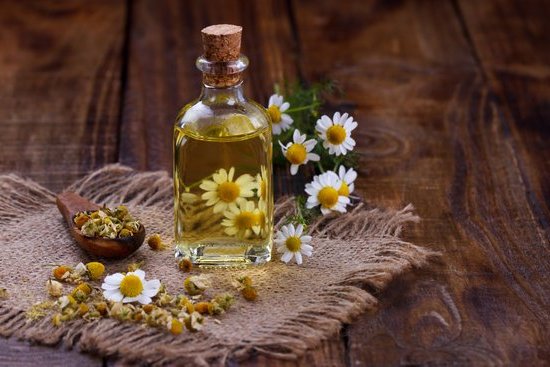Aromatherapy, the use of natural plant extracts to enhance physical and psychological well-being, has gained popularity for its potential therapeutic benefits. However, for individuals with asthma, a chronic respiratory condition characterized by inflammation and narrowing of the airways, the question of safety arises. Is aromatherapy safe for asthmatics? This article explores this important query to provide clarity for those considering integrating essential oils into their health routine.
Asthma is a common condition that affects millions worldwide, causing symptoms like wheezing, breathlessness, chest tightness, and coughing. Triggers such as allergens, respiratory infections, exercise, and even strong odors can exacerbate asthma symptoms. Given the sensitivities asthmatics have towards certain irritants, it’s crucial to investigate whether aromatherapy could potentially worsen these conditions or provide relief.
While aromatherapy is generally considered safe for many individuals when used appropriately, asthmatics must approach it cautiously due to the respiratory nature of their condition. The inhalation of essential oils can trigger asthma attacks in some individuals with sensitivities to fragrances or specific compounds found in oils. Understanding the potential risks associated with aromatherapy for asthmatics is paramount in making informed decisions about incorporating these natural remedies into their self-care routines.
Understanding Asthma
Asthma is a chronic respiratory condition that affects millions of people worldwide. It is characterized by inflammation and narrowing of the airways, leading to symptoms such as shortness of breath, wheezing, coughing, and chest tightness. Asthma triggers can vary from person to person, with common factors including allergens like pollen or dust mites, respiratory infections, exercise, cold air, and even stress. Understanding one’s specific asthma triggers is crucial in managing the condition effectively.
For asthmatics considering aromatherapy as a complementary therapy, it is essential to address the question: is aromatherapy safe for asthmatics? The answer depends on several factors, including the individual’s sensitivity to certain scents and the quality of essential oils used.
While some asthmatics may find relief from symptoms through aromatherapy, others may experience worsened symptoms or allergic reactions. It is recommended for asthmatics to proceed with caution and consult with their healthcare provider before incorporating aromatherapy into their treatment plan.
When using aromatherapy as an asthmatic, it is important to take certain precautions. Avoid strong scents or synthetic fragrances that may exacerbate asthma symptoms. Opt for high-quality essential oils from reputable sources and perform patch tests before using them extensively. Additionally, consider alternative methods of aromatherapy such as diffusers or inhalers that allow for controlled exposure to essential oils without direct contact with the skin or airways.
| Aromatherapy Safety Tips | Details |
|---|---|
| Avoid Strong Scents | Strong fragrances can trigger asthma symptoms |
| Use High-Quality Essential Oils | Ensure oils are pure and free from additives |
| Consider Alternative Methods | Diffusers or inhalers may be safer options for asthmatics |
The Safety Concern
Asthma is a chronic respiratory condition that affects the airways, leading to symptoms like coughing, wheezing, and difficulty breathing. Given the sensitive nature of asthma, many individuals wonder if aromatherapy is safe for asthmatics. The answer largely depends on the essential oils used and how they are incorporated into the treatment plan. While some essential oils can potentially trigger asthma symptoms in some individuals, others may actually help alleviate certain asthma-related issues.
It is important for asthmatics to proceed with caution when considering aromatherapy as part of their wellness routine. Some essential oils may contain volatile organic compounds (VOCs) that can irritate the respiratory system and exacerbate asthma symptoms. For instance, strong fragrances like eucalyptus or peppermint may trigger an asthma attack in some individuals. On the other hand, lavender or chamomile essential oils are generally considered safer options for asthmatics due to their milder scent profiles.
To ensure the safety of using aromatherapy for asthmatics, it is crucial to consult with a healthcare provider or aromatherapy specialist before incorporating essential oils into your routine. They can provide personalized recommendations based on your specific triggers and sensitivities.
Additionally, it is advisable to perform a patch test before using any new essential oil to check for any adverse reactions or sensitivity. By taking these precautions and choosing appropriate essential oils, asthmatics can safely enjoy the potential benefits of aromatherapy without compromising their respiratory health.
| Essential Oils | Recommended Usage |
|---|---|
| Lavender | Dilute in carrier oil for topical application or use in a diffuser |
| Chamomile | Use in a steam inhalation or dilute for topical application |
Potential Risks
Aromatherapy, the practice of using essential oils for therapeutic purposes, is gaining popularity for its potential benefits in promoting relaxation, reducing stress, and improving overall well-being. However, when it comes to individuals with asthma, there are concerns about the safety of using essential oils due to the potential respiratory risks they may pose. So, is aromatherapy safe for asthmatics?
For asthmatics, certain essential oils can trigger asthma symptoms or exacerbate existing respiratory issues. It is crucial for individuals with asthma to be cautious when using aromatherapy products and to consult with a healthcare provider before incorporating them into their wellness routine. Some essential oils have volatile organic compounds that can irritate the airways and potentially worsen asthma symptoms.
To ensure the safety of asthmatics when using essential oils for aromatherapy, here are some best practices to consider:
1. Consult with a healthcare provider: Before starting any aromatherapy regimen, individuals with asthma should consult with their doctor or a qualified healthcare professional to discuss potential risks and safe options.
2. Avoid known triggers: Asthmatics should steer clear of essential oils known to trigger respiratory issues such as eucalyptus, peppermint, and rosemary.
3. Dilute properly: When using essential oils topically or in a diffuser, ensure proper dilution to reduce the risk of irritation or sensitization.
4. Test on a small patch of skin: Before widespread use, perform a skin patch test to check for any allergic reactions or sensitivities.
By following these guidelines and being mindful of potential risks associated with aromatherapy, asthmatics can safely enjoy the benefits of essential oils without compromising their respiratory health. Always prioritize caution and seek guidance from healthcare professionals when in doubt about incorporating aromatherapy into your wellness routine as an individual with asthma.
Best Practices
Asthma is a chronic respiratory condition that requires careful management to avoid triggering symptoms such as wheezing, coughing, and shortness of breath. For individuals with asthma who are interested in exploring aromatherapy as a complementary therapy, it is crucial to approach it with caution. While aromatherapy has been praised for its potential benefits in promoting relaxation, reducing stress, and improving mood, the use of essential oils may pose risks for asthmatics if not used properly.
Consulting With Healthcare Providers
Before incorporating aromatherapy into their routine, asthmatics should consult with their healthcare providers to ensure that it is safe for them. Healthcare professionals can provide personalized recommendations based on the individual’s medical history and asthma triggers. It is important to communicate openly about any concerns or past experiences with essential oils to determine the best course of action.
Avoiding Common Triggers
Asthmatics should be cautious when using essential oils known to potentially trigger asthma symptoms, such as strong fragrances or respiratory irritants. To minimize the risk of adverse reactions, individuals can perform patch tests before applying essential oils topically or inhaling them. Additionally, diluting essential oils with carrier oils can help reduce their potency and lessen the likelihood of triggering asthma symptoms.
Moderation and Monitoring
When incorporating aromatherapy into their routine, asthmatics should practice moderation and monitor their response to different essential oils. Keeping track of how their body reacts to specific scents can help identify any patterns or triggers. If any adverse reactions occur, individuals should discontinue use immediately and seek guidance from a healthcare provider. By approaching aromatherapy with mindfulness and caution, asthmatics can safely enjoy the potential benefits without compromising their respiratory health.
Choosing the Right Essential Oils
Aromatherapy is a popular holistic treatment that utilizes essential oils extracted from plants to promote physical and psychological well-being. These oils are often used in various ways, such as through inhalation, topical application, or even ingestion. Many people turn to aromatherapy for its potential benefits, including stress relief, improved sleep quality, and enhanced mood. However, when it comes to individuals with asthma, there are concerns regarding the safety of using essential oils.
Understanding Asthma and Essential Oils
Asthma is a chronic respiratory condition characterized by inflammation and narrowing of the airways, leading to symptoms like wheezing, coughing, chest tightness, and shortness of breath. For asthmatics, exposure to certain triggers can worsen their symptoms and even result in potentially life-threatening asthma attacks. This raises the question: is aromatherapy safe for asthmatics? While essential oils are generally considered safe when used appropriately, there are factors that individuals with asthma should consider before incorporating them into their routine.
Best Essential Oils for Asthmatics
When it comes to choosing essential oils for asthmatics, it is crucial to opt for oils that have anti-inflammatory properties and are known for their respiratory benefits. Some of the best essential oils for asthmatics include eucalyptus, peppermint, lavender, tea tree, and chamomile. These oils have been traditionally used for their soothing effects on the respiratory system and may help alleviate symptoms such as congestion and inflammation.
It is important to dilute these essential oils properly before use and perform a patch test to check for any allergic reactions. Additionally, individuals with asthma should consult with their healthcare provider before incorporating aromatherapy into their treatment plan to ensure it is safe for them.
Alternative Methods
Aromatherapy can offer various benefits for overall well-being, but for individuals with asthma, there may be concerns about the safety of using essential oils. Asthma is a chronic respiratory condition that causes inflammation and narrowing of the airways, leading to symptoms like coughing, wheezing, and shortness of breath. With the potential triggers present in some essential oils, it is essential to explore alternative methods of aromatherapy that may be safer for asthmatics.
One alternative method to consider when incorporating aromatherapy for asthma management is the use of diffusers. Diffusers disperse essential oils into the air in a diluted form, reducing the risk of direct exposure and inhalation. This method allows individuals to benefit from the therapeutic properties of essential oils without overwhelming their respiratory system. Some popular types of diffusers include ultrasonic, nebulizing, and heat diffusers.
Another safe way for asthmatics to enjoy aromatherapy is through inhaling oils by using a personal inhaler or adding a couple of drops on a tissue or cotton ball. This method allows for controlled inhalation and minimizes direct contact with the skin or airways.
By inhaling essential oils in this manner, individuals can still experience the calming effects or other benefits without risking triggers that could exacerbate their asthma symptoms. Below are some best practices for safely inhaling essential oils:
- Use only high-quality, pure essential oils
- Start with a low concentration and increase gradually if tolerated
- Avoid inhaling directly from the bottle; instead, add a few drops to a tissue or cotton ball
- Take breaks between sessions to prevent overexposure
Incorporating aromatherapy through alternative methods like diffusers or inhalation can be a safe way for asthmatics to enjoy the benefits of essential oils without risking potential triggers. By following guidelines on usage and choosing suitable essential oils, individuals with asthma can make informed decisions on how best to include aromatherapy in their wellness routine while prioritizing their respiratory health.
Conclusion
In conclusion, the question of whether aromatherapy is safe for asthmatics is a valid concern that should not be taken lightly. While aromatherapy can offer potential benefits for overall well-being, individuals with asthma need to approach this practice cautiously. It is important to understand the specific triggers and symptoms of asthma in order to determine if aromatherapy may exacerbate any existing issues.
When considering incorporating aromatherapy into a routine, asthmatics should consult with their healthcare provider to ensure it is safe for them. Potential risks such as triggering asthma attacks or respiratory irritation are important factors to consider. It is crucial to choose the right essential oils that are less likely to cause adverse reactions and follow best practices like diluting oils properly and inhaling in a well-ventilated area.
Alternative methods like using diffusers or inhaling oils indirectly through a cloth may be safer options for asthmatics who still want to experience the benefits of aromatherapy. Ultimately, the safety and effectiveness of aromatherapy for asthmatics will vary from individual to individual, so it is essential to proceed with caution and prioritize personal health and well-being above all else. Remember, always consult with a healthcare professional before starting any new treatment or therapy, including aromatherapy.
Frequently Asked Questions
Can People With Asthma Use Aromatherapy?
People with asthma can use aromatherapy, but they should proceed with caution. Some essential oils may trigger asthma symptoms or allergies in individuals. It is best for asthmatics to consult with their healthcare provider before incorporating aromatherapy into their routine.
Who Should Avoid Aromatherapy?
Individuals who have respiratory conditions like asthma, chronic obstructive pulmonary disease (COPD), or bronchitis should avoid aromatherapy without consulting a healthcare professional first. The inhalation of certain essential oils can potentially worsen respiratory symptoms and cause breathing difficulties in these individuals.
Who Shouldn T Have Aromatherapy?
Certain groups of people should not have aromatherapy, such as pregnant women and infants. Pregnant women should avoid essential oils that are known to induce contractions or affect hormone levels, while infants have delicate skin and respiratory systems that could be irritated by strong scents.
Additionally, individuals with epilepsy should be cautious as some essential oils may trigger seizures in susceptible individuals.

Are you looking for a natural way to improve your health and wellbeing?
If so, aromatherapy may be the answer for you.





